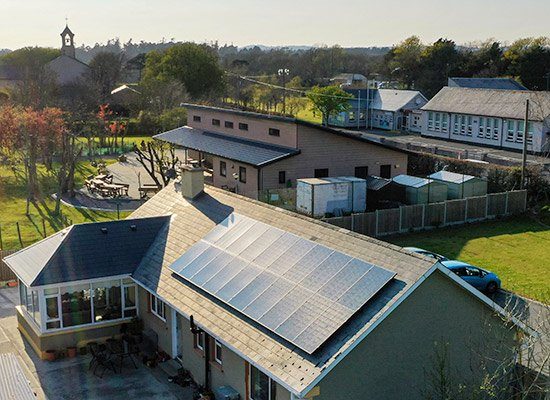Microgeneration Scheme:
Get paid for excess solar energy that you don't use
The Micro-generation Support Scheme (MSS) enables homeowners to be paid for sending excess renewable electricity they generate back to the grid.
The government has introduced a scheme, called the Micro-Generation Support Scheme (MSS), that allows homes, farms and businesses around Ireland, that have solar PV systems installed, to sell any excess electricity that they generate back into the grid for a price set by the customer’s energy supplier.


How does the Microgeneration Scheme work and how much is the rate?
The electricity that is generated from solar panels can be used throughout the day for running household appliances (washing machine, dishwasher etc.). If the system has a battery connected, the energy can be used to fill the battery for use later in the day, maximising consumption. But if the battery is full, and your appliances are not running, then the excess energy will go back to the grid. Your energy supplier will then credit your account at a set rate. The rates vary between suppliers. Per kWh Energia offer a rate of 24c, Electric Ireland 21c, SSE Airtricity 19.5c and Bord Gáis Energy 18.5c.
The main benefit of Microgeneration is a greener future for the planet
The Government has set the goal of generating about 70% of our electricity needs from renewable solar energy by 2030. This is part of an overall Climate action plan. Households all over Ireland will see huge benefits from installing solar panels. Grants up to €2,100, 0% VAT, and lower energy bills. But the main benefit yet to be seen is the massive impact microgeneration with solar panels will have on climate change and the planet.





